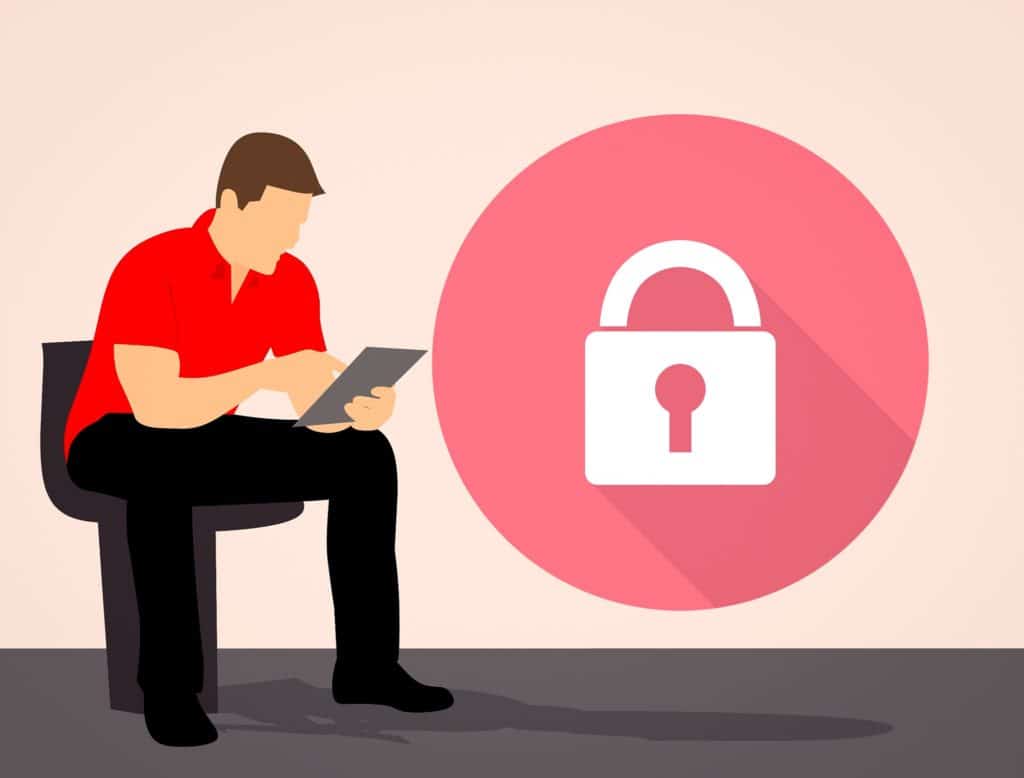The prevalence of technology in the modern world provides a lot of benefits. Unfortunately, it also creates a lot of opportunities for security breaches. Today’s companies not only need to be aware of the dangers but they also have to comply with certain regulations that are designed to safeguard data. If a company’s data is compromised, there is often swift public backlash – particularly if customer details were involved.

Even though it may seem difficult and costly to protect your data, it is actually easier than you might think. There are a lot of simple, low-cost ways to improve your company’s data security.
The five tips below will help you protect your information by minimizing the risk of intrusions or breaches.
Learn To Identify Phishing Attempts
Phishing is one of the most common methods used for obtaining usernames and passwords or personal data. With this technique, scammers send out messages that appear to be from reliable sources. The goal behind the messages is to fool people into providing their login details or other personal information to the sender.
Identifying these messages is usually relatively easy. Most of them are riddled with grammatical errors. They often try to create a sense of urgency by demanding a quick response. For instance, you might receive a message telling you that someone hacked your account. Alternatively, the message may tell you that you have to pay money right away to prevent something unfortunate from happening. The sender might even try to trick you into thinking that you have been locked out of your bank account.
If you respond to or click on a link in a phishing email, the person who sent the email can obtain your login credentials, your financial information, or other personal information that you definitely don’t want in the wrong hands. Phishing scams are particularly problematic for businesses since a single breach can put the whole company at risk.
The best way to avoid problems like these is by educating your staff on how to recognize phishing attempts. Come up with a list of best practices for users to follow if they do receive one of these messages.
Create Regular Backups
Even though backing up your data may feel like a waste of time, having a recent backup can be a real lifesaver if something goes wrong with your system. If your system is attacked or if it malfunctions, all of your data can be damaged or destroyed. Regular backups will help you be prepared so that you don’t wind up losing everything. Most corrupted data is the result of technological malfunctions rather than malicious attacks.
Losing your data could negatively impact your business, both in terms of its finances and its reputation. As long as you have backups, however, you can restore the lost data and get your business back up and running again.
Make Sure Your Networks Are Secure
When it comes to security, your Internet connection is usually the last thing that comes to mind. After all, most connections pass through routers that not only are protected by passwords but also provide data encryption and utilise a proxy checker.
When using public Wi-Fi, however, that isn’t the case. Places like airports, coffee shops, and hotels often provide free Wi-Fi for their patrons. Unfortunately, there is no way to tell whether or not these connections are truly secure. If you are just casually looking at websites, that usually isn’t an issue. However, if you are using the connection to log into accounts or to access important information, it can be extremely problematic.
Employees often rely on public Wi-Fi connections to complete their work while they are traveling. To avoid any data loss, teach employees how to use virtual private networks or train them to work off-line while they are traveling.
Apply Patches Immediately
No matter how well designed a software program or website is, there are almost always vulnerable areas that people with malicious intent can take advantage of. Fortunately, most vendors who provide software programs are constantly on the lookout for problems, releasing patches anytime they find a vulnerable area. Always apply these patches the minute that you receive them to ensure that your programs are up-to-date – this will keep you or your business safe.
Stay Focused And Consider Your Actions
Data loss often occurs because of silly mistakes that people make. From losing a work laptop to sending a message to the wrong account, these simple errors can often have serious consequences.
While there is no way to avoid every error, it is important to be as aware as possible. Remind your employees of your company’s security protocols on a regular basis to make sure that they are in compliance.
Training programs can also go a long way toward helping employees understand their responsibilities in terms of security. Make sure staff members are trained to handle sensitive data with extreme caution and to always pay attention to what they are doing. When it comes to work laptops, remind them that they should always be kept in a locked room or carried with the person at all times. Train people to always verify that they have the correct recipient before sending out an email.
Follow Data Protection Standards
ISO 207001 is an information security standard that is worth familiarizing yourself with. It clearly outlines the best practices that businesses should follow to protect their data.
With this particular security standard, businesses are instructed to implement an information security management system (ISMS). This centrally located system is designed to manage everything from the company’s technology and processes to its employees. Using one of these systems not only makes protecting data easier but it also simplifies the process of changing or enhancing your company’s security protocols.









